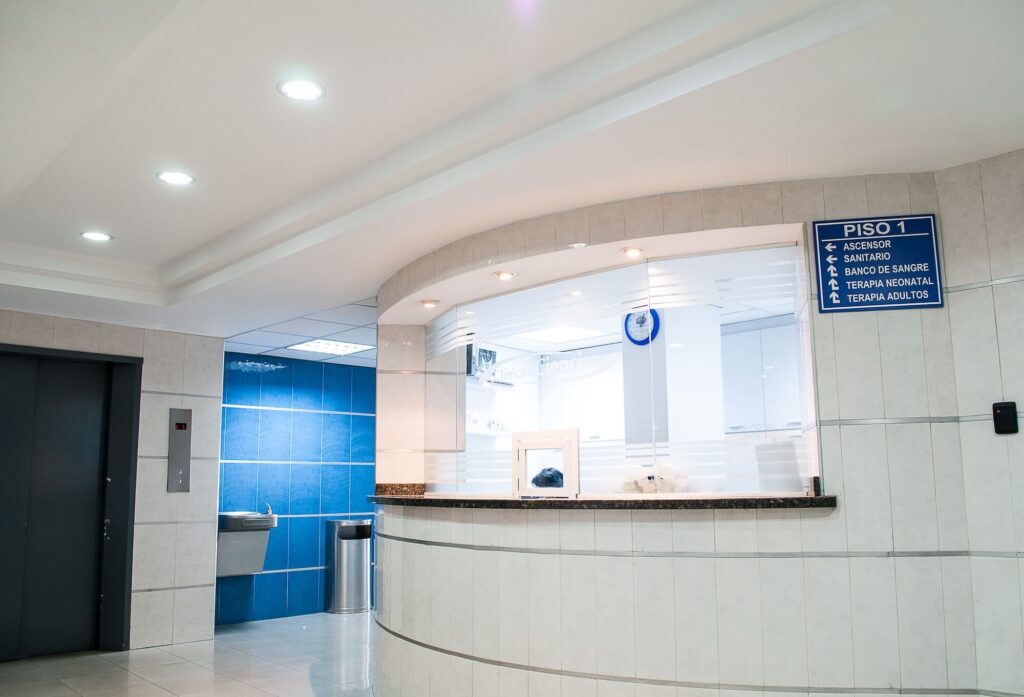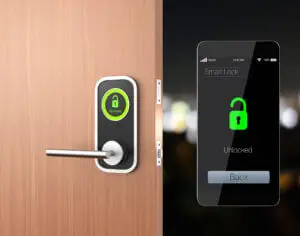We understand that the safety and security of hospitals are crucial. Proper access control ensures that only authorized personnel can enter restricted areas, allowing for the safe administration of medical care and the protection of valuable hospital assets.
To help you understand this better, we’ve created the ultimate FAQ guide on hospital access control door locks.
What is an access control door lock?
An access control door lock is a security device designed to restrict access to specific areas or premises by permitting only authorized individuals with valid credentials access through locks equipped with specialized entry systems. Usually, the hospital staff can gain access to hospital doors.
Why do hospitals need access control door locks?
Hospitals have unique security requirements since they serve as critical care facilities for patients in various stages of recovery. By implementing a robust system of nominal keys, biometric readers, CCTV surveillance cameras, and other physical safeguard methods, hospitals can ensure that their high-value assets stay safe while providing patient care.
Hospitals have a complex physical security environment due to the need to protect the privacy, safety, and well-being of patients, visitors, and staff, as well as valuable equipment, medications, and other assets. Access control door locks are an essential component of hospital security, as they provide a way to control who can enter specific areas of the facility.
Here are some reasons why hospitals need access control door locks:
- Patient privacy: Hospitals are required by law to protect patient privacy and personal information. Access control door locks can limit access to patient rooms, medical records, and other areas where confidential information is stored.
- Prevent theft and vandalism: Hospitals have valuable equipment, medications, and supplies that are attractive targets for theft and vandalism. Access control door locks can prevent unauthorized access to these areas.
- Safety: Hospitals need to ensure the safety of patients, visitors, and staff. Access control door locks can limit access to sensitive areas, such as surgery rooms, where only authorized personnel should be allowed.
- Emergency response: In case of an emergency, access control door locks can be used to quickly secure an area or prevent unauthorized access to prevent further harm.
- Compliance: Many hospitals are required to comply with regulations such as HIPAA (Health Insurance Portability and Accountability Act) and Joint Commission standards. Access control door locks can help hospitals meet these requirements.
Overall, access control door locks play a critical role in maintaining the security of hospitals and protecting the privacy, safety, and well-being of patients, visitors, and staff.
What types of hospital access control door locks are there?
There are many types of hospital access control door locks available in the market. Some popular ones include:
- Biometric readers
- Proximity card readers
- Smartcard readers
- Magnetic stripe readers
Each type possesses its set of distinctive features and advantages that suit different user needs based on factors like budget constraints, expected traffic flow rate through doors, and frequency restrictions for visitors or staff entering certain high-security areas within the facility.

How does biometric technology work in hospital access control?
Biometrics technology confirms identity using unique individual physiological characteristics such as fingerprint patterns or retina scans placed over sensors integrated into entrance points like doors or elevators.
Biometrics identifies authorized personnel within seconds without cumbersome credential management issues prevalent with traditional key-based authentication methods.
Can you remotely manage hospital access control systems?
Yes! Modern hospital construction designs incorporate contemporary computer technologies making it possible to operate remote management tools from anywhere in the world.
Networked access control systems operating over PC, Macs, or smartphones provide administrators with real-time monitoring and tracking and multiple device integrations like CCTV, panic alarms, HVAC, and lighting sensors.
What are the benefits of using hospital access control door locks?
Hospital access control door locks offer many benefits to healthcare organizations, such as:
- Enhancing Physical Security
- Reducing Asset Losses
- Increased Patient Safety
- Efficient Staff Management
- Avoiding Unauthorized Access
Are hospital access control door locks compatible with other systems?
Yes. Hospital access control door locks can be integrated with other technology systems due to their flexible nature. Integration with various systems like HVAC, lighting controls, panic alarms, intercoms, and video/audio capabilities makes security measures more comprehensive.

How do you choose the right hospital access control door lock system?
Selecting the appropriate access control system for your hospital requires evaluation of several factors like physical size, budgetary constraints, and expected user volume, among others.
It’s crucial to work with expert commercial locksmiths who understand how such systems work and will guide unit selection according to your proposed entry points.
How much does it cost?
The cost of access control varies depending on a lot of factors, such as the number of entry points requiring installation throughout the facility in addition to subscription costs.
For accurate pricing details customized uniquely towards specific hospital needs, contact a professional locksmith or vendor that focuses on commercial hardware mechanisms.
Can an access control system be hacked by computer criminals?
Access control systems are usually quite secure and well protected as long as proper measures are taken during initial installation coupled with audit trail features that administrative personnel can use to view potential suspicious entries via real-time threat monitoring from computer viruses.

Who should install an access control door lock at your hospital?
It’s essential for any prospective hospital seeking dependable security systems to partner with certified professionals experienced in installing commercial-grade hardware like electronic door locks.
Security integration is best managed through consultation with specialized vendors providing comprehensive lockdown services either for archive storage facilities or hospitals protecting critical care units.
How long does it take to install an access control door lock in a hospital?
The installation process will vary depending on the complexity of each system. However, the time it takes varies between 1 to 3 weeks. In some cases, medical care units may require disconnection from electricity, making scheduling with healthcare management critical.
What are the essential features of a hospital security system?
Some fundamental features of a secure hospital security system include unauthorized user alerts, real-time video monitoring, and tampering notifications specifically customized to alert Medical Security Enforcers of any breaches.
Can I integrate an older access control system with modern technology?
Yes. Upgrading your access control system doesn’t necessarily mean replacing everything already deployed.
By partnering with leading vendors who specialize in systems integration capabilities, retrofits can be accomplished with minimal disruption at cost-effective prices while integrating various IoT devices within commercial-grade hardware solutions.
Are there any complex compliance considerations for locks on room-level privacy health facilities?
Depending on the prevailing government statutes overriding construction and healthcare facility management regulations are considered whenever redesigning hospitals or expanding actual locations.
So, before proceeding, marketing evaluations are needed to notify authorities concerning contraventions by increasing various stakeholders’ stakeholder awareness about compliance hazards that could result from non-compliance.
How do you prevent equipment theft in hospitals?
Healthcare facilities are surprisingly lucrative targets for thieves looking to steal expensive medical equipment like scanning machines and soundings, among others.
Such incidents can lead to significant financial losses in addition to negatively impacting patient care value chain services.
Installing cameras that capture images both inside and outside narrow areas combined with electrified access controls can deter criminals effectively.
Conclusion
Using an efficient and updated Hospital Access Control Door Lock System benefits healthcare providers who operate sensitive areas under scrutiny and whose patients depend on optimal care while minimizing instances of theft within premises across multi-enterprise architectures.
It is of the utmost importance for a hospital or other medical facilities to have access control door lock systems for all emergency rooms, intensive care units, and operating rooms. Only the security personnel and facility managers should be able to access the control systems.






